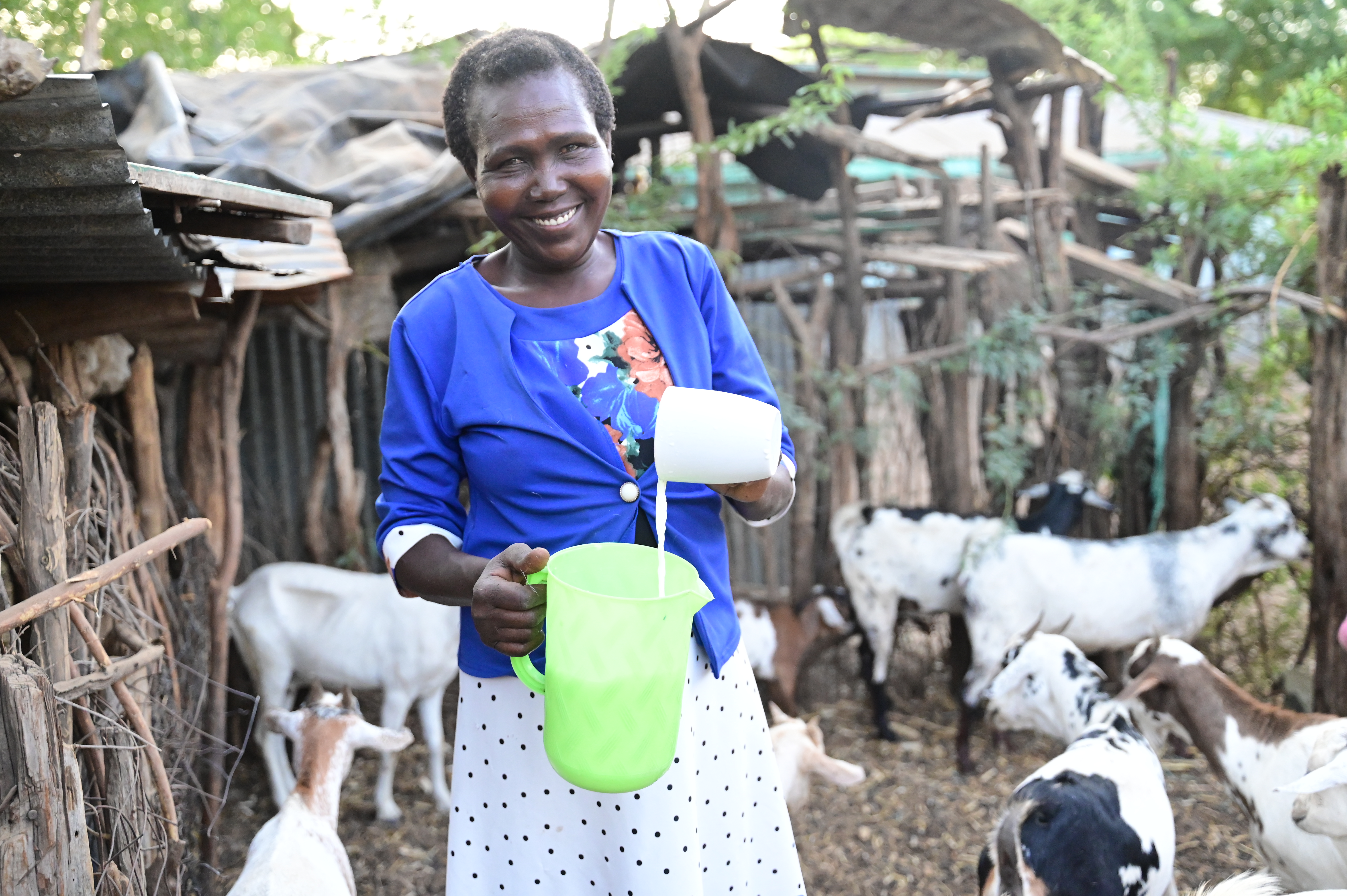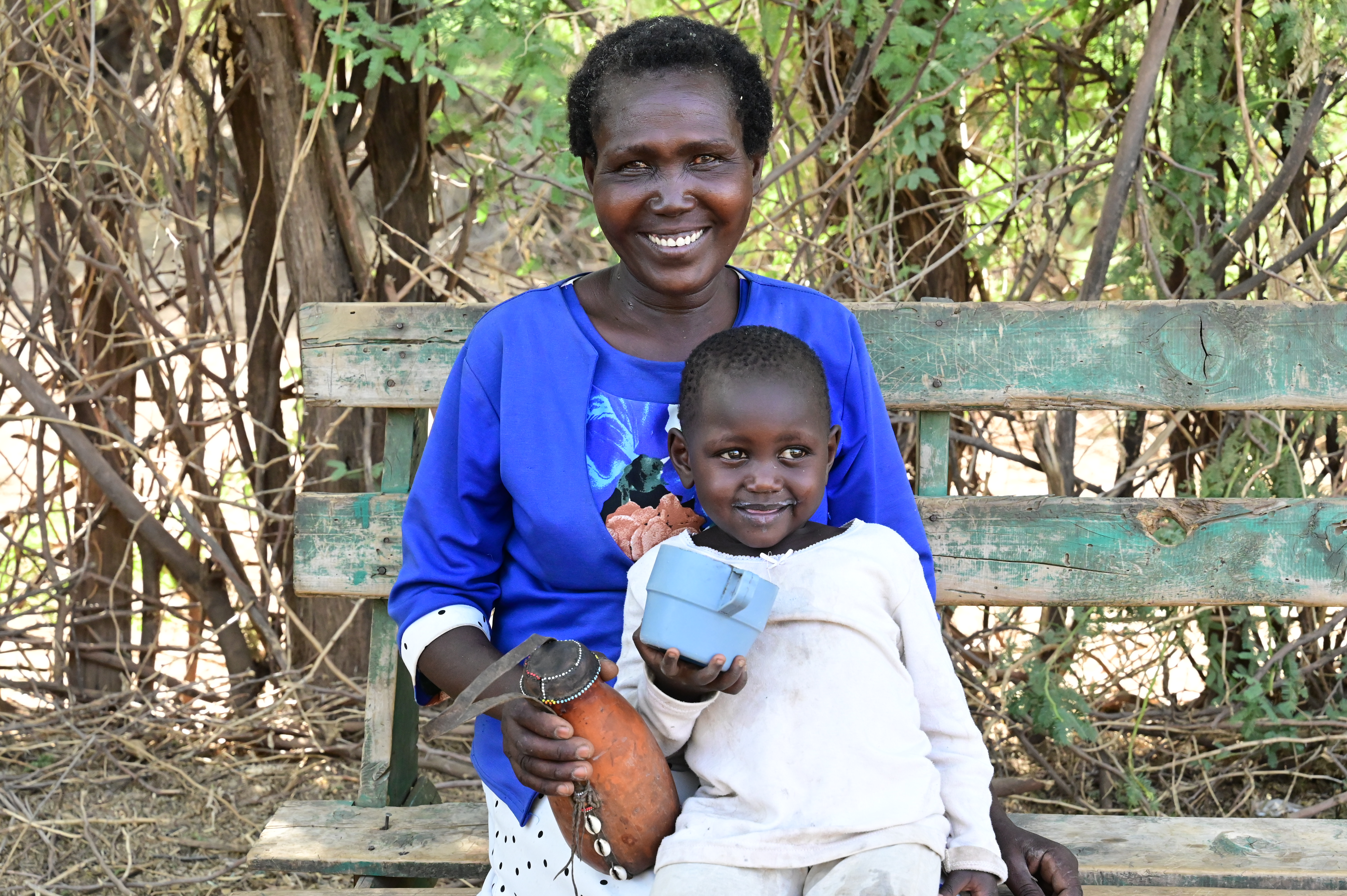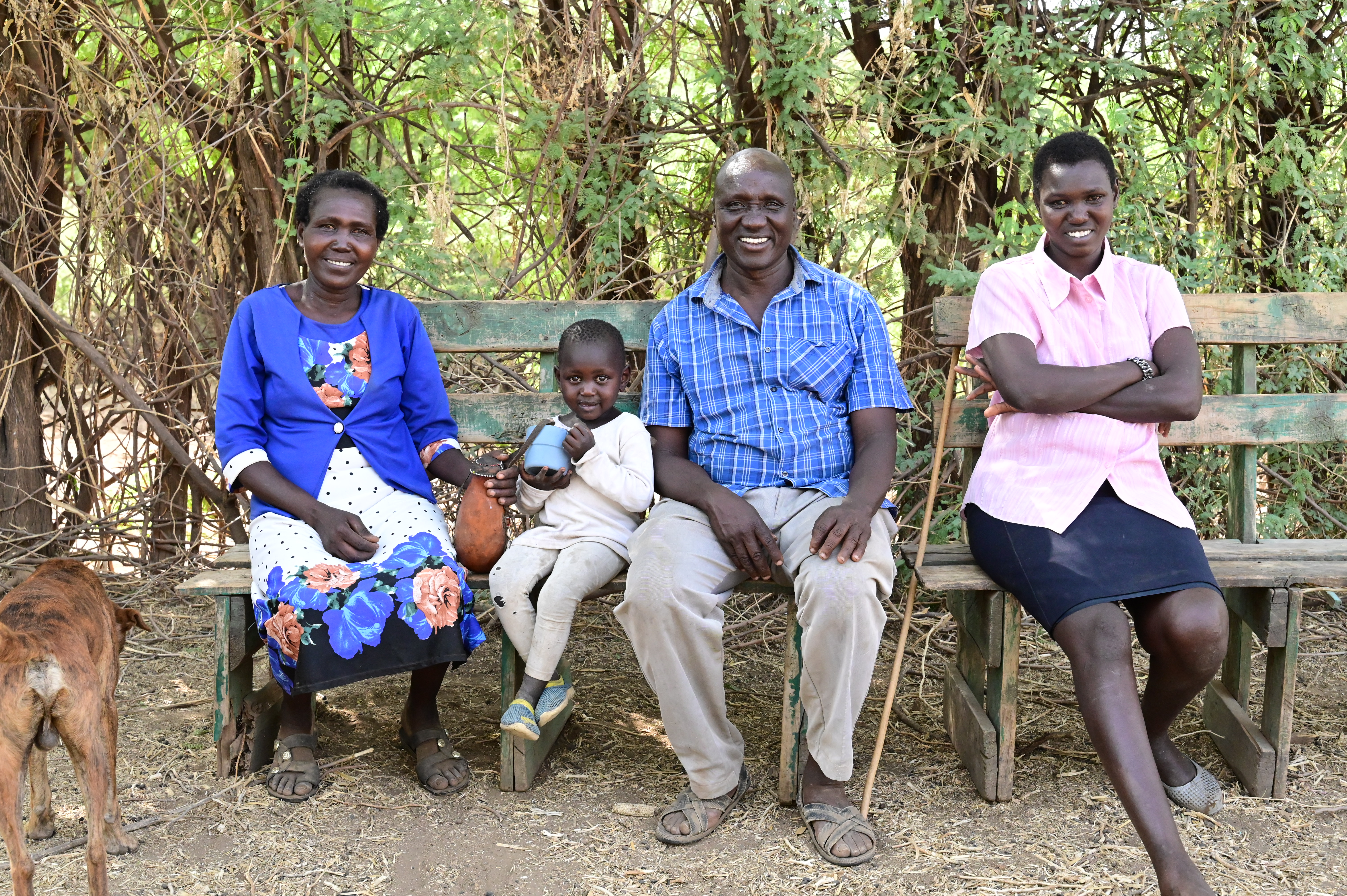
Trees provide communities with sufficient fodder to sustain livestock during prolonged droughts
May 3, 2023
By Hellen Owuor, Communications Officer (CRIFSUP), World Vision Kenya
Gladys Bargoret comes from Losekem village in Baringo County, Kenya. She began implementing the Farmer Managed Natural Regeneration (FMNR) approach in 2018 on one acre of her farmland. She has now increased this area to six and a half acres dedicated to FMNR. This was inspired by the benefits she gets from practicing the approach, enough to sustain her family and livestock even in the dry season.
The availability of diversified sources of nutrition has enabled Gladys to maintain healthy goats, cattle and hens. Despite many considering Prosopis juliflora destructive, Gladys uses the pods of this invasive weed as animal feed.

Whether it is the dry season or wet season, Gladys’ granddaughter gets to enjoy the traditional fermented milk that she loves. ©World Vision Photo/Hellen Owuor.
During wet seasons when there is abundant animal feed, Gladys usually milks her goats and collects at least four litres daily. She sells two litres at 60 Kenyan Shillings (USD 0.47) per litre and leaves the rest for consumption at home.
When need arises, she also sells her goats depending on the age, size and demand. The price of a goat ranges between 2,000 to 4,000 Kenyan Shillings (USD 15.41 to 30.82). The cost can rise up to 6,000 Kenyan Shillings (USD 46.22) during festive seasons in Kenya.

Communities affected by harsh climatic conditions are assured of sustained well-being of their families and livestock all year round thanks to FMNR. ©World Vision Photo/Hellen Owuor.
“As long as there is money and food for my family and livestock, I am satisfied. So far, FMNR has made that possible,” Gladys says.
Read more here
